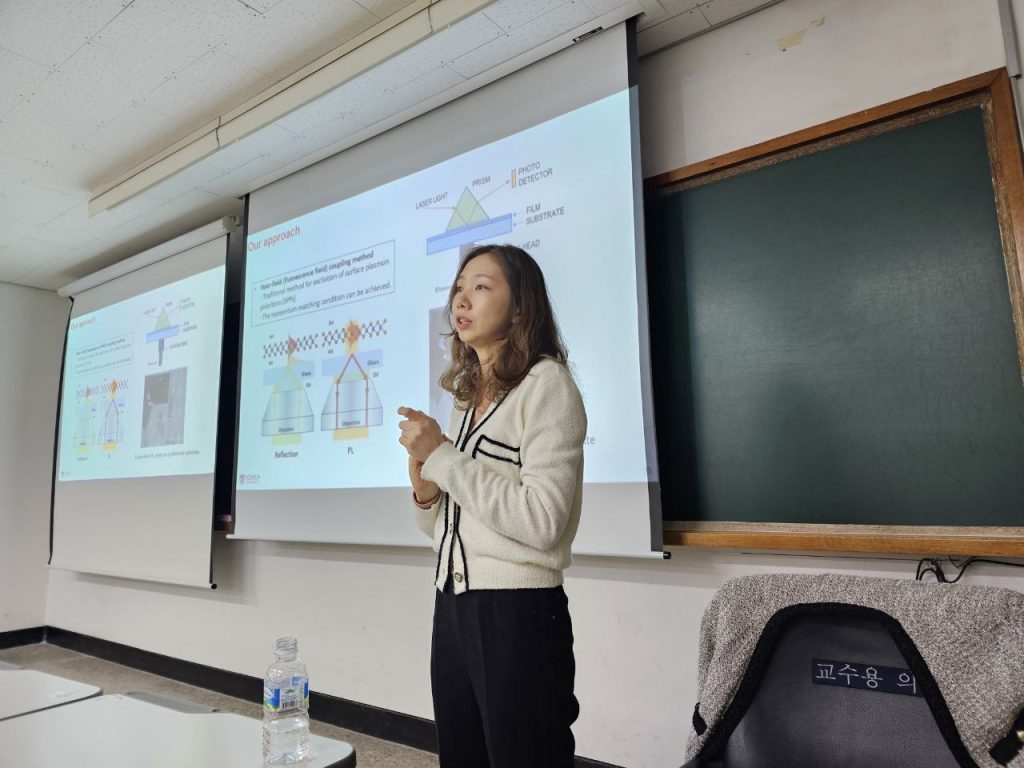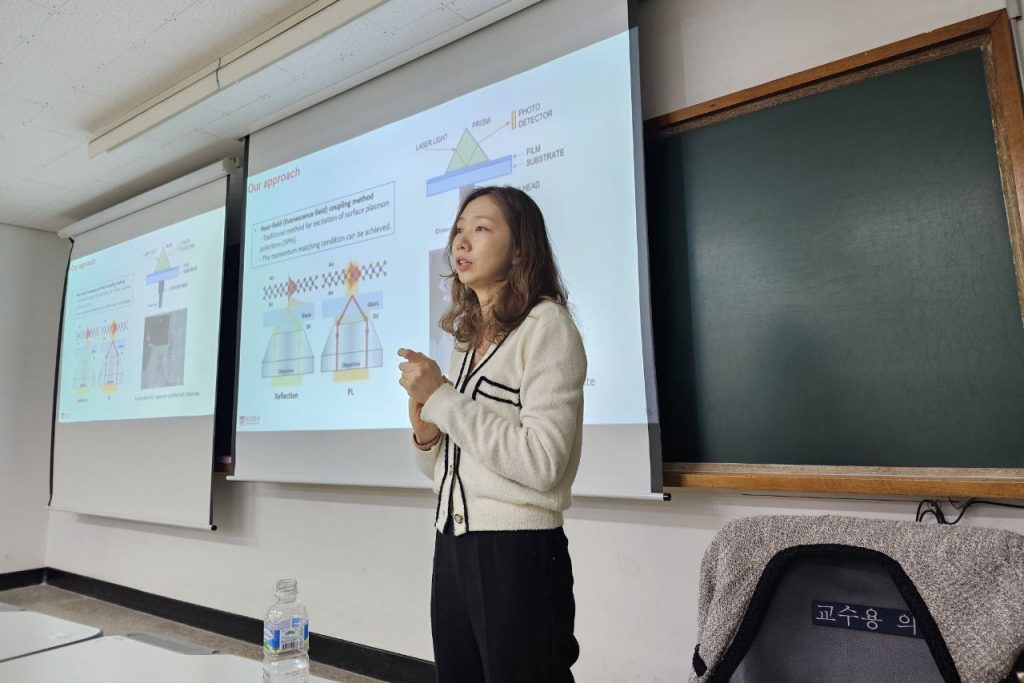
Quantum nano-optics
Prof. Gong Soo-hyun (Korea university)
07.Apr. 2023 (17:00) |Science And Technology Building(#112), University Of Seoul, Korea
Title : Quantum nano-optics
주제 : 양자 나노과학
Speaker : Prof. Gong Soo-hyun (Korea university)
강연자(소속) : 공수현 교수 (고려대학교)
Date : 07.Apr. 2023 (17:00)
일 시 : 2023년 4월 7일 (17:00)
Location : Science and technology building(#112), University of Seoul, Korea
장소: 과학기술관 112호, 서울시립대학교, 한국
Organizaion : Department of Physics College of Natural Sciences, Institute of Natural Science
주최/주관 : 자연과학대학 물리학과, 자연과학연구소
Valley-photon coupling in 2D semiconductors
Su-Hyun Gong
Department of Physics, Korea University, Seoul, Republic of Korea
The emergence of transition metal dichalcogenides (TMD) layers has sparked significant research interest because of their outstanding optical property and optically assessable new internal degrees of freedom called valley pseudospins. Despite its strong exciton resonance strength, the interaction between light and a TMD layer is intrinsically weak due to the huge mismatch between wavelength and the layer thickness (400–1500 nm vs. <1 nm). It is generally believed that additional photonic structures such as external cavities are necessary to increase light-matter coupling in a TMD layer. However, these additional structures easily spoil valley pseudospin information making it difficult to exploit the full potential of TMD layers. Recently, the possibility of light guiding in 2D TMD layers without a cavity, like the surface plasmon polariton in 2D graphene, has been demonstrated. Because the light-guiding is attributed to the high permittivity of 2D TMD layers near the exciton resonance, this mode is called exciton polaritons. In this talk, experimental observation of the guided exciton polariton in multilayered WS2 will be discussed. By utilizing the near-field coupling method, we directly observed the anti-crossing behavior of exciton and photon dispersion curves, indicating exciton polariton dispersion. The dispersion of the guided polaritons can be easily tuned by controlling the thickness of the layer or the excitation power of the laser. More importantly, we found that the guided polariton mode can exhibit valley polarization under circularly polarized excitation. These results pave the way for exploiting a valley pseudospin in integrated valleytronics devices using nanophotonics structures.


